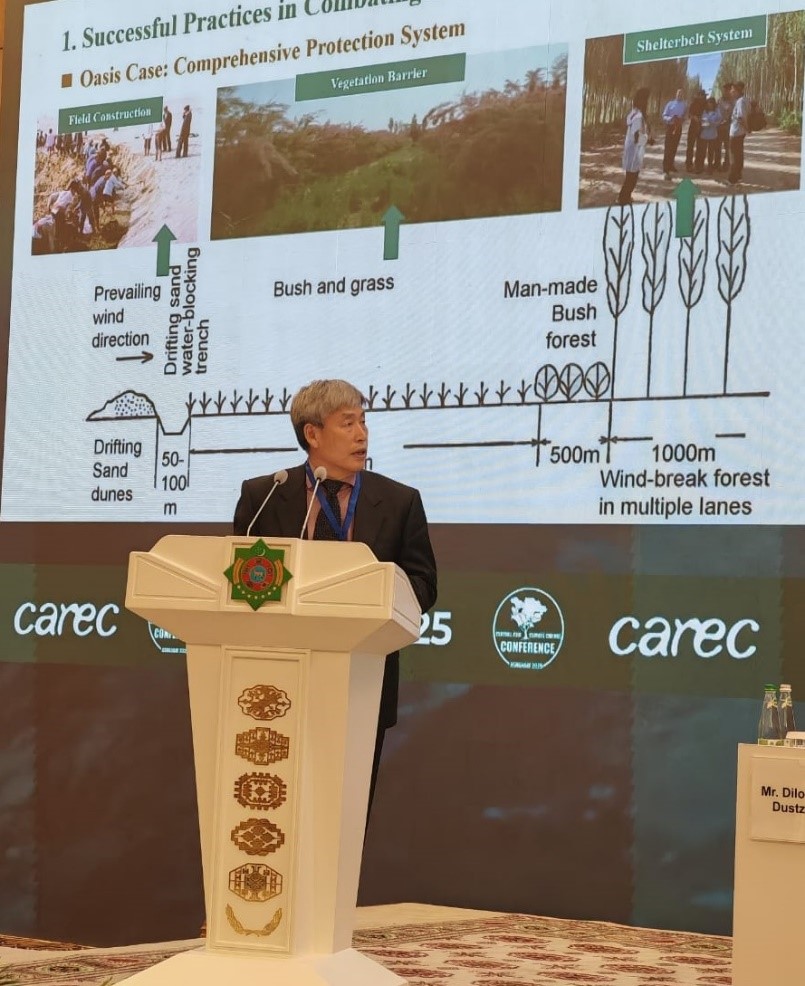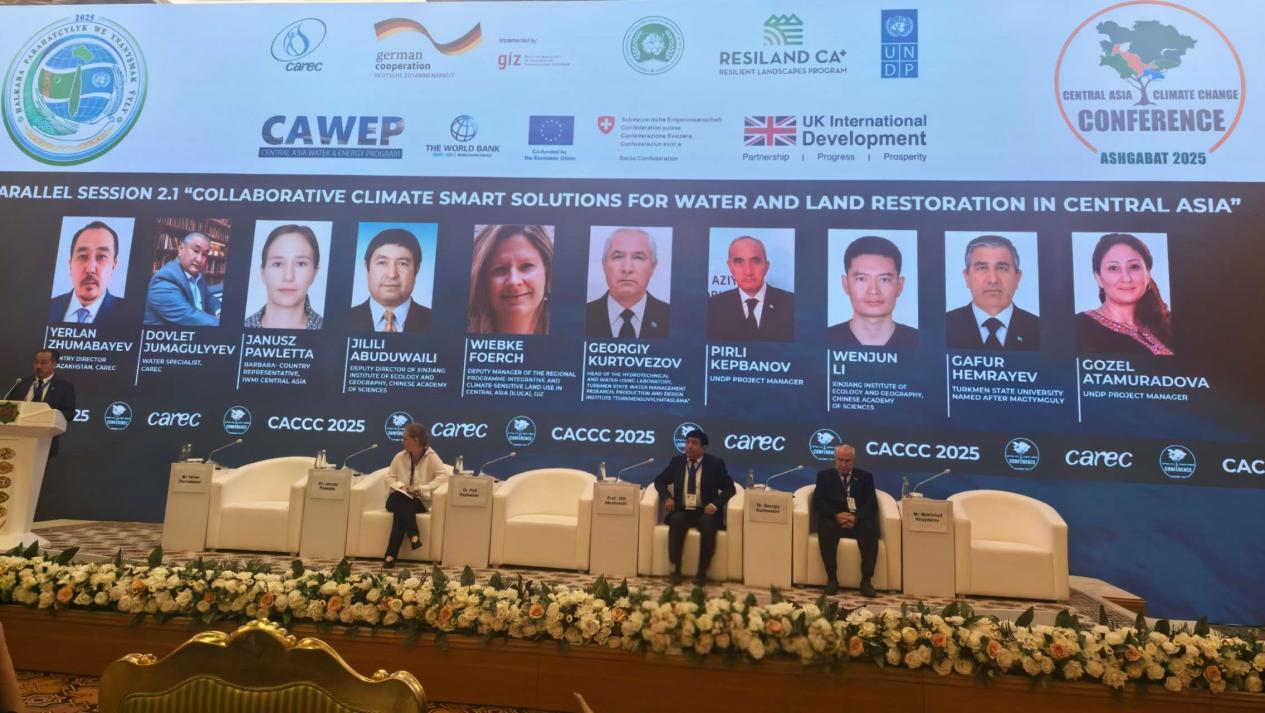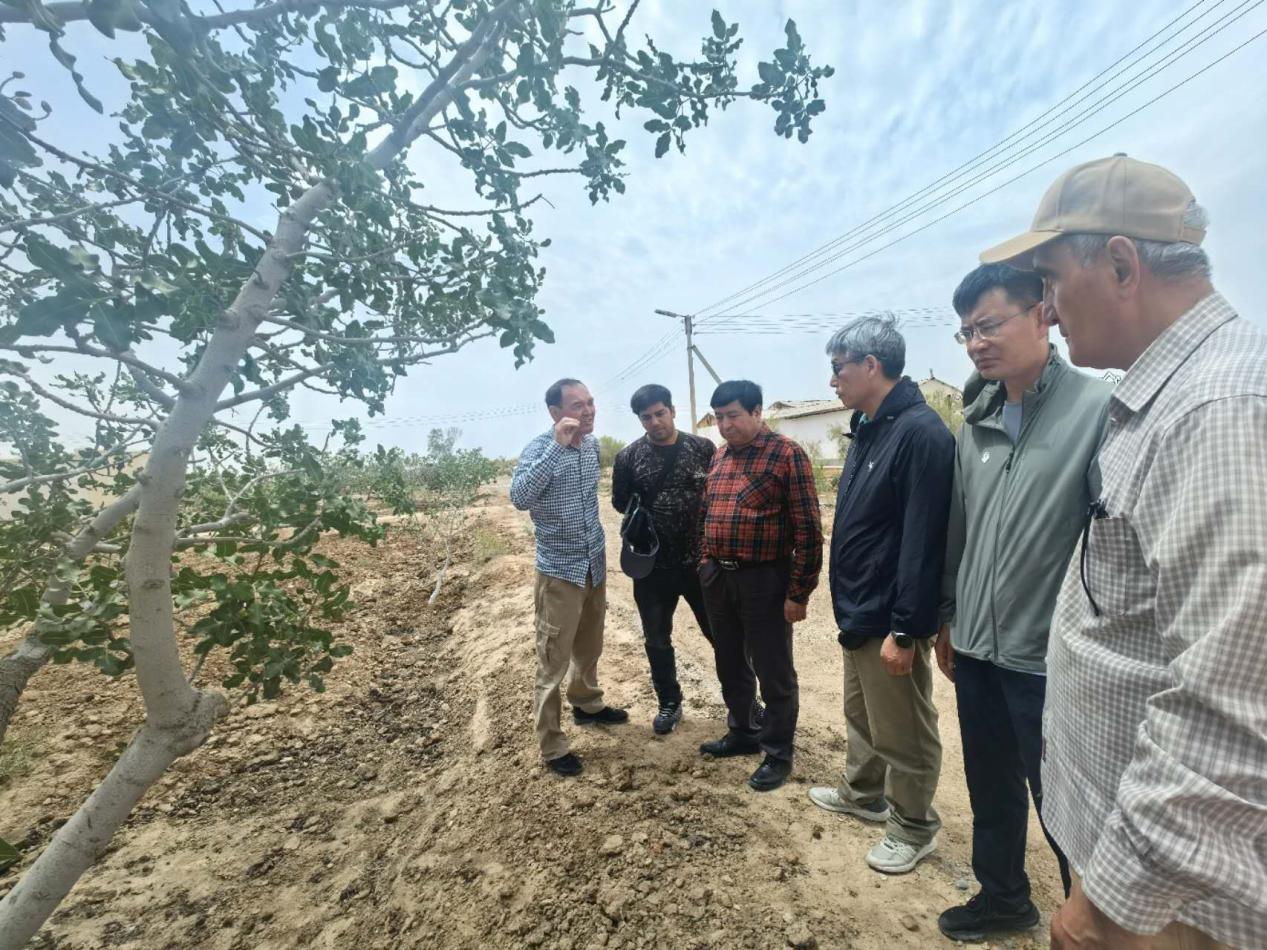XIEG Shares China's Experience at Central Asia Climate Change Conference
2025-05-26
From May 13 to 15, the Central Asia Climate Change Conference (CACCC-2025) was successfully held in Ashgabat, Turkmenistan. The event is organized by the Regional Environmental Centre for Central Asia (CAREC) and the Government of Turkmenistan, with support from the World Bank, the Central Asia Water and Energy Program (CAWEP), the RESILAND CA+ Program, and the Deutsche Gesellschaft für Internationale Zusammenarbeit (GIZ). The conference brought together more than 200 participants, including government representatives from Central Asian countries, international experts, scientists, entrepreneurs, and civil society members. Participants engaged in in-depth discussions on climate financing mechanisms, regional cooperation, and sustainable development strategies in agriculture, ecology, energy, and water resources. The Xinjiang Institute of Ecology and Geography (XIEG) of the Chinese Academy of Sciences was invited to participate in the conference and co-host a parallel session. During the session, XIEG shared China’sexpertise and experience in addressing climate change, water resource management, ecological restoration, and biodiversity conservation, significantlystrengthening its influence on environmental issues in Central Asia.
At the thematic forum on "Transboundary Landscape Restoration in Central Asia" held on May 14, government representatives from Kazakhstan, Kyrgyzstan, Tajikistan, Turkmenistan, and Uzbekistan, along with experts from the World Bank, the United Nations Convention to Combat Desertification (UNCCD), the United Nations Development Programme (UNDP), and XIEG, delivered keynote speeches. Prof. LEI Jiaqiang from XIEG, shared China's successful practices in combating desertification. He also shared notable examples of land degradation restoration efforts in Africa, Central Asia, and specifically the Aral Sea region. In his presentation, he emphasized the importance of strengthening regional scientific and technological collaboration among Central Asian countries. He urged stakeholders to fully leverage the potential of cross-border enterprises and to enhance the application of technologies and models aimed at climate change adaptation and desertification control.
At the parallel session titled "Climate-Smart Collaborative Solutions for Water and Land Restoration in Central Asia," co-organized by the XIEG, the International Water Management Institute (IWMI), and the National Institute of Deserts, Flora and Fauna of Turkmenistan, experts engaged in extensive discussions on key topics related to climate adaptation. Prof. Jilili Abuduwaili and Prof. LI Wenjun from XIEG, together with experts from IWMI, the National Water Management Institute of Turkmenistan, GIZ, UNDP, the National Institute of Deserts, Flora and Fauna of Turkmenistan, and Turkmen State University, shared valuable insights and practices on climate-resilient water resource management, highlighting the importance of knowledge sharing and regional cooperation among Central Asian countries to restore degraded lands, enhance resilience, and promote biodiversity conservation.
After the conference, experts from the XIEG and the National Institute of Deserts, Flora and Fauna of Turkmenistan conducted a joint field visit to the Karakum Desert and the State Nature Reserve "Bereketli Garagum". During the visit, both parties reached a consensus on strengthening collaboration in key areas including biodiversity conservation, ecosystem monitoring under climate change, and desertification research. They also agreed toinitiate joint research projects, co-publish scientific findings, and promote academic exchanges and mutual visits to strengthen their partnership further.
XIEG and the National Institute of Deserts, Flora and Fauna, Ministry of Environmental Protection of Turkmenistan signed a cooperation agreement in September 2024. This visit further strengthened the mutual trust and exchange between the two institutions. Through the platform provided by the CACCC-2025 conference, XIEG effectively amplified the voice of Chinese scientists, establishing a solid foundation for its deeper involvement in regional environmental governance in the future.

Prof. LEI Jiaqiang is delivering a presentation.

Parallel Session: Climate-Smart Collaborative Solutions for Water and Land Restoration in Central Asia

Field Visit
Contact
LONG Huaping
Xinjiang Institute of Ecology and Geography
E-mail: longhp@ms.xjb.ac.cn
Web: http://english.egi.cas.cn



